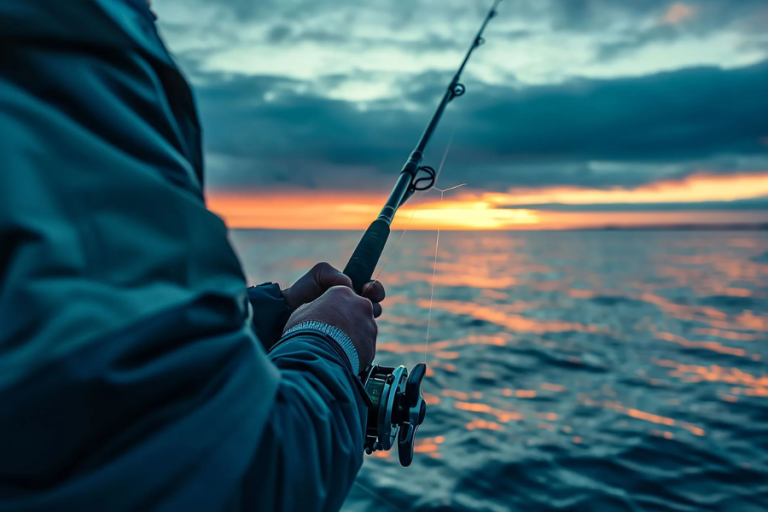Introduction to Fishing Techniques
Mastering fishing requires more than just a rod and a little luck. Successful anglers understand that various techniques cater to different types of fishing experiences. Whether you are a beginner or an experienced angler, exploring diverse techniques like spinning, fly fishing, or bait casting can elevate your fishing game. Each method has unique nuances and is suited for targeting specific fish species. For example, while spinning reels are ideal for catching small to medium-sized fish, fly fishing requires considerable skill and precision, offering a more immersive fishing experience.
With the advent of technology and skilled craftsmanship, the possibilities are endless. For those interested in deeper waters, Cape Coral deep sea fishing charters offer an unparalleled opportunity to venture into the open sea where the big fish roam. These charters provide all the necessary gear and expertise, ensuring you have everything you need to enjoy the thrill of the ocean.
Selecting Your Gear
Picking the right fishing gear can be as crucial as your techniques. Your choice should depend on factors such as the type of water you’ll be fishing in, the species you’re after and your style. The dizzying array of rods, reels and lines available today can make the selection process daunting. However, each piece of equipment is critical in improving your experience and success rate. For instance, while a lightweight rod provides flexibility for freshwater fishing, a sturdier setup may be essential for tackling larger saltwater fish.
Reputable resources can guide you through this process. They offer detailed buying guides that cater to various fishing styles and preferences, helping you choose gear that matches your skill level and specific fishing goals.
Identifying Fishing Spots
Finding the perfect fishing spot is a blend of knowledge and observation. It’s about understanding the environment, seasonal changes, and the behavioral patterns of your target catch. Different species thrive in particular conditions; some may favor rocky bottoms, while others are partial to grassy shorelines. Thus, knowledge of local geography can make or break your fishing expedition.
Resources like fishing reports and local knowledge can help you locate the best fishing spots. Mapping tools and apps also offer valuable insights by analyzing habitats and weather patterns, increasing your chances of success.
Timing is Everything
The timing of your fishing trip can significantly affect your catch rate. As any seasoned angler will tell you, different fish species are active at other times of the day and year. When fish feed aggressively, morning and late afternoon often yield the best results in freshwater fishing. Seasonal windows also dictate fish movements and feeding habits, influencing your fishing strategy. Understanding these rhythms and cycles turns a simple outing into a calculated pursuit with a higher chance of success.
Additionally, natural elements like weather, moon phases, and tides can significantly impact fish behavior. Tide charts and solunar tables offer predictive insights to incorporate into your fishing plans. Adapting your strategies based on these can transform how you approach each fishing session and significantly impact your success rate.
Fishing Ethics and Conservation
Responsible fishing practices are essential for protecting aquatic ecosystems. These practices involve adhering to local regulations, respecting private property, and engaging in catch-and-release practices where applicable. Ethical fishing also means avoiding overfished areas and being mindful of endangered species.
Conservation goes beyond just following regulations; it’s about ensuring our natural resources are sustained for future generations. Initiatives and movements in sustainable fishing, like those discussed in National Geographic’s coverage of sustainable fishing practices, play a pivotal role in promoting responsible angling. Supporting conservation efforts through volunteering or contributing to habitat restoration projects can help maintain the ecological balance and biodiversity of fish habitats.
Common Mistakes and How to Avoid Them
Even experienced anglers sometimes make common mistakes that could easily be avoided with planning and awareness. Overlooking weather forecasts or forgetting essential gear can disrupt an otherwise perfect day on the water. Failure to investigate your fishing location or to have a fishing license might result in legal issues and fines.
Preparation is crucial to improving your fishing outcomes. It means packing adequately, checking your equipment before heading out, and keeping backup tackle in case of unexpected snags or line breaks. Periodic reviews of local fishing regulations can also keep your outings trouble-free and enjoyable.
Best Practices from Professional Anglers
Learning from seasoned anglers can significantly enhance your fishing skills and enjoyment. Critical elements for success include thorough preparation, unwavering patience and adaptability.
Preparation involves selecting the right gear based on your fishing type and targeted species and practicing casting techniques for better accuracy. Patience is essential, as fishing often requires long hours before a catch and staying calm during slow periods can lead to rewards.
Adaptability is crucial as environmental changes can influence your success. Being willing to switch locations, bait, or fishing styles can help you seize opportunities.
Engaging in workshops and local fishing communities can provide valuable insights. Connecting with experienced anglers lets you share tips and experiences, enriching your fishing journey.
Successful fishing requires knowledge, skill, and favorable conditions, and staying connected with the fishing community can significantly enhance your experience.
Stay informed with the news and updates on celebzwave

